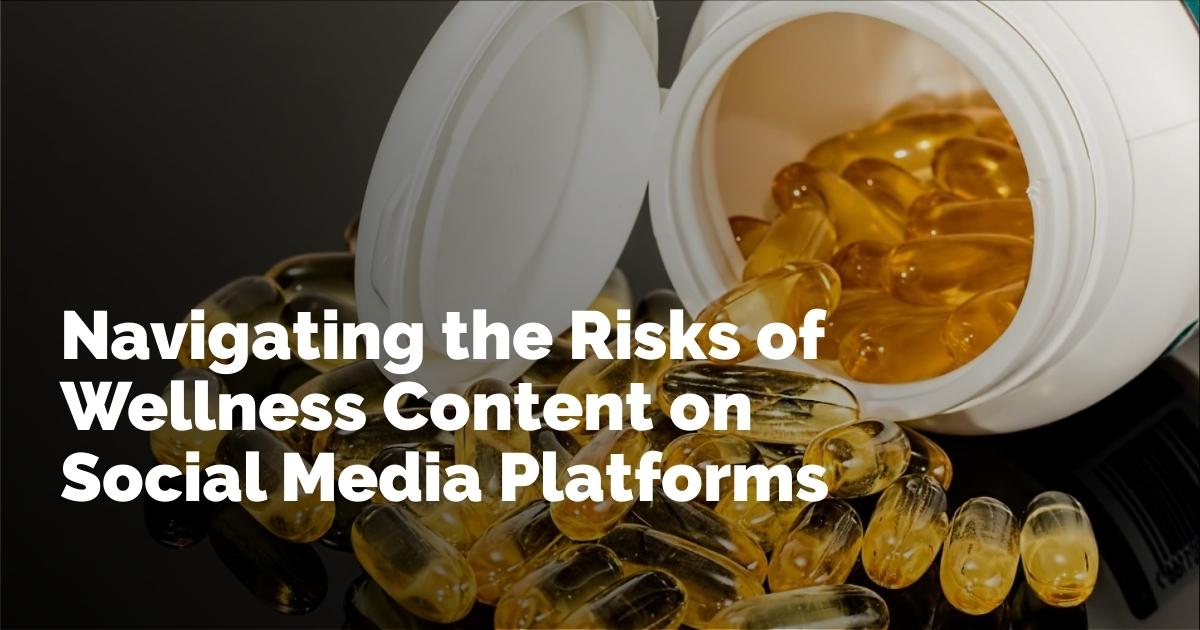Key Challenges with Health Advice on TikTok
Social media platforms are admittedly popular sources of information today, especially TikTok. The video-sharing app has become somewhat of a go-to place for health and wellness advice. However, insights from recent research point out a glaring truth: much of the health advice available on TikTok is largely inaccurate. This presents a significant challenge for users navigating the complex social media environment, trying to discern what advice is safe and reliable. The responsibility for evaluating the accuracy and associated risks of online health advice is increasingly falling onto the shoulders of individual users.
Understanding Misinformation and Disinformation
It's an accepted fact that social media platforms are often breeding grounds for misinformation and disinformation. The distinction between the two is essential. Misinformation refers to false information spread unintentionally. This could be because users unknowingly share incorrect facts or baseless rumors. Disinformation, on the other hand, is far more pernicious. It involves the intentional dissemination of falsehoods, often driven by motives around profit, power, or chaos creation. Both misinformation and disinformation spread rapidly, similar to a wildfire, complicating the information landscape for social media users.
Health and Wellness Information on TikTok
Due to the decline in trust towards traditional information sources like governments and the health care industry, many individuals now rely on social media for health-related information. TikTok has emerged as a prominent platform in this context, particularly among younger users. They gravitate towards TikTok for advice on nutrition and other health topics. However, TikTok's environment often blurs the lines between credible health information and misleading content, propagating unrealistic standards concerning weight loss and beauty, especially targeted at young female users.
Research by Zeng and colleagues (2025) reveals a troubling aspect of TikTok's health content. An overwhelming amount of diet and nutrition-related content stems from wellness influencers lacking relevant credentials or expertise. As little as 4 to 5 percent of this content comes from actual experts in the field. The same research highlights that diet and weight loss content is especially inaccurate compared to other wellness topics produced by influencers. This reality underscores a significant concern: while the digital age offers vast information access, it does not necessarily guarantee quality or authenticity in the content consumed by users.
Furthermore, most wellness influencers (over 80 percent) do not clearly disclose advertising affiliations or potential conflicts of interest related to their content. Thus, users are often exposed to content intended to sell products rather than provide genuine advice. This lack of transparency further compounds the challenges users face when deciphering the validity of health advice on TikTok.
The Perils of Wellness Content on Social Media Sites
In today's world, science itself seems to be under attack. This may explain why users increasingly turn to social media for health and wellness insights rather than relying on conventional science-backed channels. As highlighted by Khan (2024), a significant portion of Americans—about 86 percent—sought health advice on social media platforms last year instead of consulting medical professionals. Unfortunately, social media platforms like TikTok lack regulatory frameworks and reliable safeguards, making it difficult for users to discern accurate health advice from misleading information.
On these platforms, perceived expertise is not determined by credentials or expertise but by popularity metrics such as follower count. Content virality often trumps legitimacy, leading to widespread dissemination of health information that may be far from accurate. This phenomenon calls for cautious consumption of health trends shared online, which are often not verified by experts. For example, users might be tempted to try out a new juice craze or "internal shower" remedy with chia seed water, only to find out that these might not deliver promised benefits. Users must acknowledge that currently, no authoritative body can hold social media influencers or Big Tech accountable if such suggestions prove ineffective or misleading.
In Summary
As social media becomes an increasingly pervasive part of life, especially among younger demographics seeking health advice, users face growing challenges in filtering out inaccurate or misleading content. The responsibility to discern accurate information from falsehoods falls primarily on individual users amidst an overwhelming barrage of conflicting online data.
While platforms like TikTok provide a convenient avenue to consume health-related content, they also pose significant risks due to their tendency to spread misinformation and prioritize viral, sensational content over accuracy. Understanding the difference between reliable and misleading information is critical for users aiming to navigate the complex world of online health advice effectively. The digital age offers unparalleled information access, but it also necessitates informed and discerning engagement to ensure that this access translates into meaningful, reliable knowledge for the public.
출처 : Original Source

